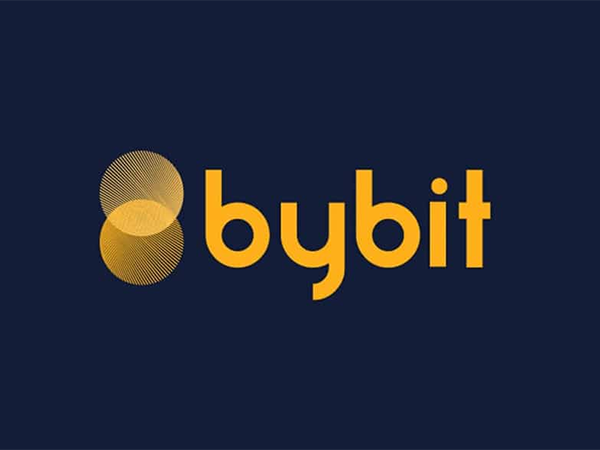Bybit 2025 Comprehensive Review: Strength Analysis of the World’s Second Largest Exchange After Crisis Rebirth

As competition in the cryptocurrency exchange sector intensifies in 2025, Bybit secures its position as the world’s second-largest platform by daily trading volume and 60 million users. Its development trajectory has been marked by both glorious milestones and severe tests. This comprehensive review dissects Bybit’s real-world performance across dimensions such as security, product features, fee structure, and user experience, to provide a complete and accurate picture of the platform.
I. Exchange Overview and Market Position
Founded by Ben Zhou in 2018 and originally based in Singapore, Bybit relocated its global headquarters to Dubai, UAE in 2023. It now serves over 195 countries and regions. As of 2025:
-
The user base exceeds 60 million, second only to Binance
-
Supports 650+ cryptocurrencies and 500+ trading pairs
-
Offers spot trading, derivatives, options, and P2P fiat on/off-ramp services (supporting 70+ fiat currencies)
However, its globalization has encountered regulatory challenges—Bybit faces restrictions in the U.S., China, France, and the U.K., and was fined €2.25 million in the Netherlands due to compliance issues.
II. In-Depth Security Analysis: Rebounding After a $1.5 Billion Hack
In February 2025, Bybit was attacked by the North Korean hacker group Lazarus, resulting in a loss of $1.5 billion in ETH assets. The incident revealed fatal weaknesses in its security system:
-
Cold wallet frontend tampered: Hackers used phishing to control operator devices and forged a Safe{Wallet} interface to deceive signers.
-
Blind signing flaw in hardware wallets: Operators couldn't verify transaction content, leading to malicious approvals.
-
Lack of independent risk control: The multi-signature setup relied on the same infrastructure, meaning a single point of failure compromised the entire system.
Post-incident response and recovery:
-
Emergency replenishment of reserves within 72 hours, with a pledge to fully compensate user assets
-
Liquidity restored to pre-incident levels within 30 days (BTC 1% depth reached $13 million)
-
Security system upgraded to five layers: cold storage + multi-signature + AI monitoring + anti-phishing code + insurance fund
2025 Bybit Security Incident Timeline
| Date | Event | Impact & Response |
|---|---|---|
| 2025-02-21 | Hacker attack | Loss of $1.5 billion in ETH assets |
| 2025-02-24 | Reserve fund replenished | Funds restored within 72 hours |
| 2025-02-28 | RPI retail order optimizer launched | Spread stabilized, protected manual traders |
| 2025-03-31 | Full liquidity restored | BTC liquidity reached $13 million/day |
III. Trading Functions and Product Line Evaluation
1. Core Trading Markets
-
Spot trading: Supports 650+ coins with 12 order types, including market, limit, iceberg orders
-
Derivatives trading: Perpetual contracts (up to 100x leverage), quarterly contracts, and options (BTC/ETH/SOL)
-
Innovative products: Copy Trading, Grid Trading, Volatility Contracts (VOL)
2. Supporting Financial Tools
-
Bybit Earn: Flexible yield (3%–5%), fixed-term products (7%–15% APY)
-
NFT marketplace: Supports 12 blockchains; pioneered "fractional index funds"
-
Quant tools: Built-in Python strategy editor and TWAP algorithmic orders
IV. Detailed Fee Structure
Bybit uses a tiered fee system with VIP discounts, overall lower than the industry average:
-
Spot trading: Standard rate of 0.1% (Maker/Taker equal)
-
Derivatives trading:
-
Maker: 0.02%
-
Taker: 0.055%
-
-
Fiat trading:
-
P2P post order: 0.15%
-
P2P take order: 0.2%
-
-
Withdrawal fees:
-
BTC: 0.0005 BTC
-
ETH: 0.005 ETH (subject to dynamic adjustment)
-
VIP users can receive up to 50% fee discounts by increasing trading volume. Bulk orders over $500,000 can apply for customized rates.
V. User Experience and Platform Design
Multi-terminal Adaptability
-
Web platform: Professional version supports 16 chart layouts and depth charts
-
Mobile app: Rated 4.7+ on iOS/Android, feature-complete compared to desktop
-
API integration: Supports quantitative institutions and high-frequency trading
Interface Innovations
-
Personalized workspace: Customize chart modules and save layouts
-
RPI order optimization: Retail traders enjoy institutional-level price improvement
-
Voice trading: AI assistant executes complex commands (in testing)
VI. Regulatory Compliance and Regional Restrictions
Bybit’s compliance progress is mixed:
-
Successful compliance: Licensed under Dubai VASP, registered with India FIU, regulated in Cyprus
-
Restricted regions: United States, Mainland China, France, United Kingdom (exited French market in January 2025)
-
Regulatory risk: Temporarily suspended services in the EEA while applying for MiCA licensing; compliance rectification ongoing
VII. Customer Support and User Feedback
Support Channels
-
24/7 live chat (average response time: 23 seconds)
-
Email support, video support
-
Multilingual communities (over 3 million users across Telegram/Discord)
Mixed Reputation
-
Positive reviews: User-friendly interface, mature copy-trading system, rich educational resources
-
Common complaints: Slow withdrawal reviews (up to 4 hours during peak), delayed email responses
-
Third-party ratings: Sitejabber 1.2 stars, Reviews.io 2.14 stars
VIII. Core Competencies and Challenges
Core Strengths
-
Top-tier liquidity: <0.1% spreads on major coins; <$0.05% slippage on $1M orders
-
Rapid product innovation: 2–3 new features per quarter (e.g., RPI orders, voice trading)
-
Derivatives depth: Derivatives account for over 65% of trading volume; full suite of professional tools
Areas for Improvement
-
Altcoin liquidity issues: Higher slippage on some small-cap coins
-
Complex KYC process: Requires multi-level identity verification including proof of address
-
Missing advanced features: No VR trading or institutional-grade custody services like Binance
IX. Conclusion: Who Should Use Bybit in 2025?
After surviving a $1.5 billion security crisis, Bybit has shown remarkable resilience and transparency, with its liquidity recovery setting a record in the industry. While regulatory compliance remains a challenge, its strengths in derivatives trading, fee optimization, and retail experience are highly competitive.
Recommended for:
-
High-frequency derivatives traders: seeking low latency + high leverage
-
Altcoin hunters: looking to invest in newly listed tokens early
-
Copy-trading users: replicating professional traders’ strategies
-
Passive income seekers: earning through Earn products
Caution advised for: U.S. users, privacy-maximalists, or beginners trading only mainstream coins
Bybit 2025 Core Capability Comparison
| Evaluation Dimension | Advantages | Risks/Weaknesses |
|---|---|---|
| Security | Five-layer protection system, proof-of-reserves | Historical major breach, reliance on centralized custody |
| Product Variety | Full derivatives suite, mature copy-trading | Lacks VR/Web3 deep integration |
| Fee Competitiveness | Negative maker fees, large VIP discounts | High cost for small withdrawals |
| Regulatory Adaptability | Licensed in Middle East & India | Limited access to U.S. and E.U. markets |
For traders willing to accept some regulatory uncertainty while pursuing high liquidity and innovative features, Bybit remains one of the most competitive trading platforms in 2025. Users are advised to start with small trades, gradually explore its powerful derivatives ecosystem, and strictly enable 2FA and anti-phishing codes to protect asset security.
-
Sign Up

OKX
OKX is a leading global digital asset trading platform offering spot and derivatives services for cryptocurrencies.
-
Sign Up

Binance
Binance is one of the world's largest cryptocurrency exchanges, offering spot, futures, staking, and a wide range of digital asset services.
-
Sign Up

Bybit
Bybit is a global cryptocurrency exchange specializing in derivatives, spot trading, and crypto-financial products.
-
Sign Up

Gate.io
Gate.io is a leading crypto exchange offering diverse trading options, low fees, and strong security since 2013.
